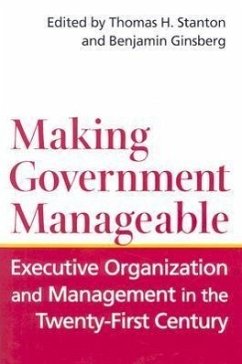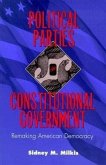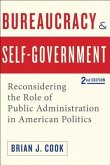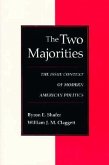What are the basic concepts of executive organization and management? How does executive organization affect management? How can executive organization and management be improved? In Making Government Manageable, Thomas H. Stanton and Benjamin Ginsberg bring together a distinguished group of authorities from both the academic and political worlds to explore problems relating to the organization and management of government. The authors begin with a brief overview of the development of executive organization and management to the present day. They then offer examples of problems in federal department organization and management. They also raise the question of the effectiveness of third-party government -- cases in which the private sector under contract with the government performs services for which the government is responsible and, in the process, makes policy for which the government becomes responsible. The authors conclude with a discussion of cases in which agencies have enjoyed some measure of success through reforming and reorganizing their internal structures and processes. Contributors: Murray Comarow, National Academy of Public Administration; Matthew A. Crenson, the Johns Hopkins University; Alan L. Dean, National Academy of Public Administration; Dan Guttman, The Johns Hopkins University and the National Academy of Public Administration; Dwight Ink, Institute of Public Administration; Ronald C. Moe, the Johns Hopkins University and National Academy of Public Administration; Sallyanne Payton, University of Michigan Law School; Beryl A. Radin, University of Baltimore and National Academy of Public Administration; Harold Seidman, formerly U.S. Bureau of the Budget; Barbara S. Wamsley, National Academy of Public Administration and the Johns Hopkins University.
Hinweis: Dieser Artikel kann nur an eine deutsche Lieferadresse ausgeliefert werden.
Hinweis: Dieser Artikel kann nur an eine deutsche Lieferadresse ausgeliefert werden.








